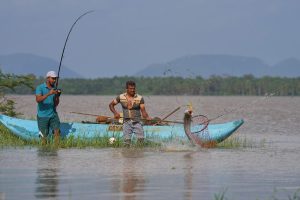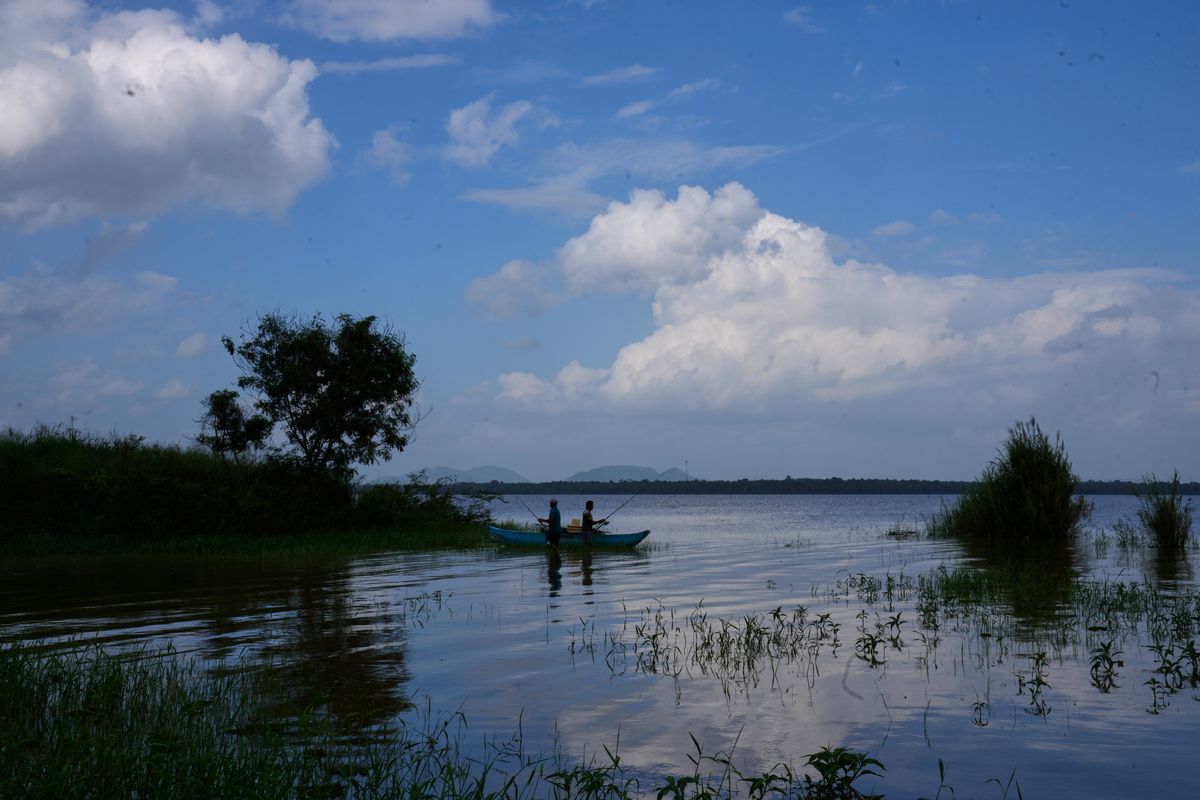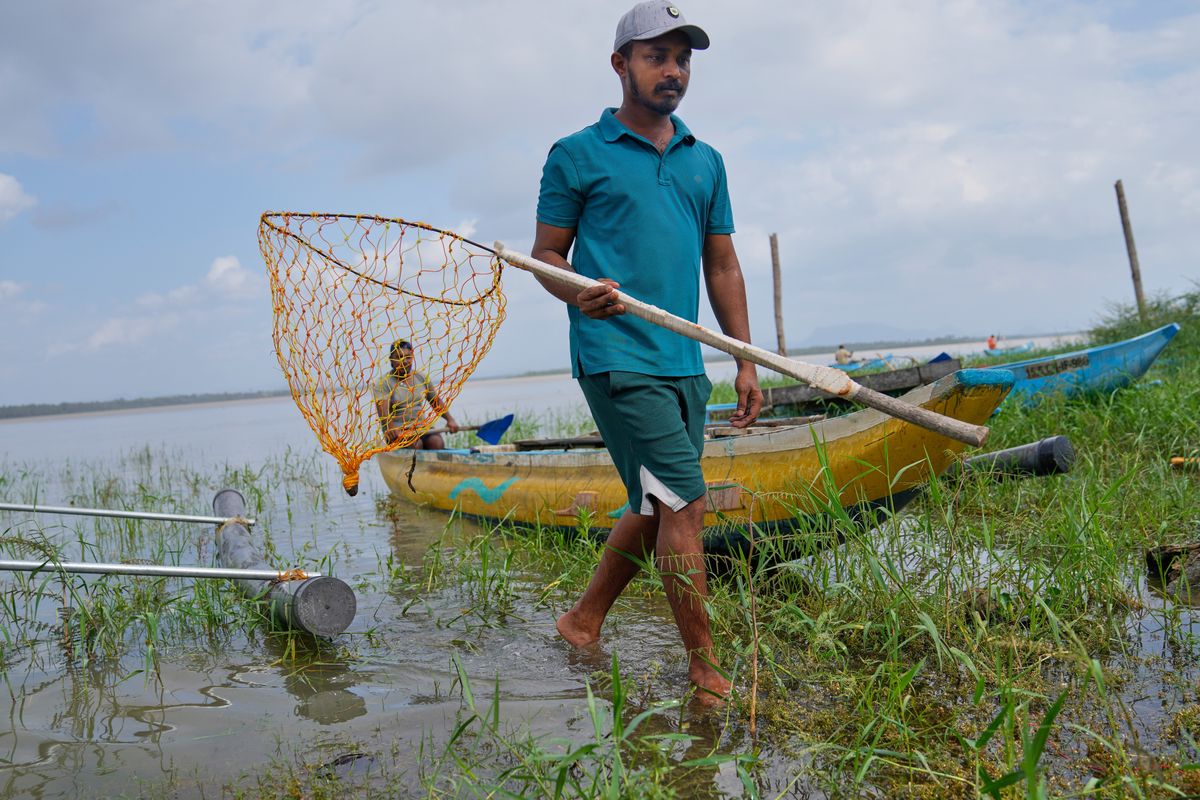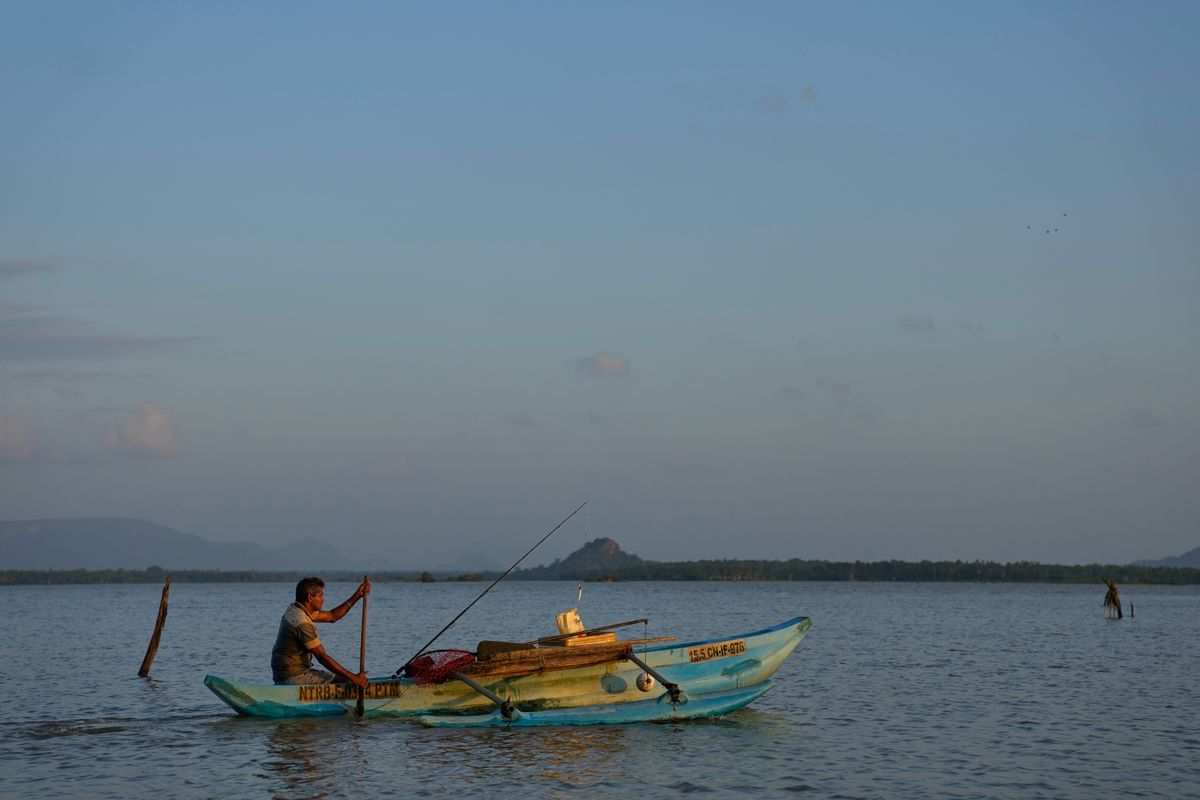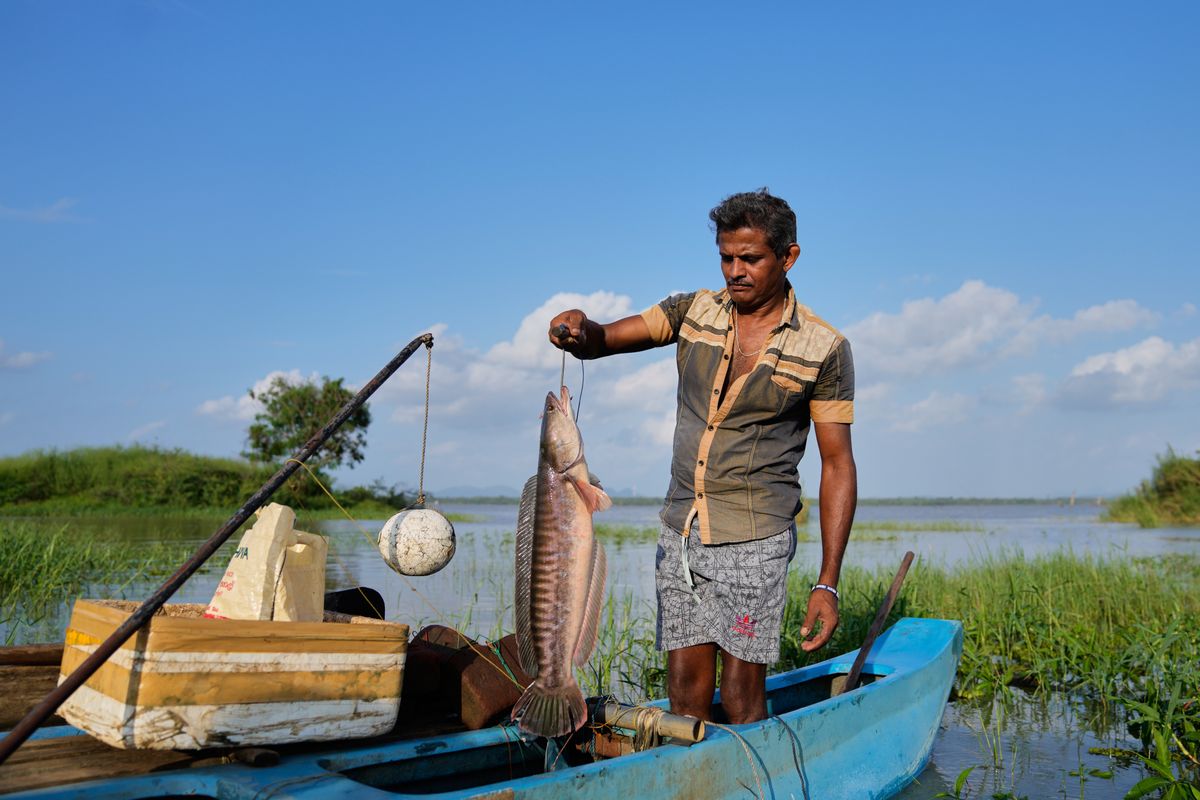DEDURU OYA, Sri Lanka (AP) — An invasive fish is threatening the livelihood of people in this northwestern village by aggressively eating traditional fish and shellfish species in the Deduru Oya reservoir, but the Sri Lankan fishers want to turn the adversity into an advantage.
Fishermen on thereservoir have noticed over the past two years a dwindling number of the fish they have been typically catching, while the snakehead fish, which have never be seen in Sri Lanka before, have been appearing in droves.
The snakehead fish, seen in countries like Thailand and Indonesia, could have arrived in Sri Lanka with imported ornamental fish, local officials said. When they started outgrowing the tanks, it was likely that their owners released them into the reservoir.
Dr. Kelum Wijenayake, an academic researching the fish, said there is no species above the snakehead in the food chain of Sri Lanka’s ecosystem, and that the Deduru Oya reservoir has provided them with an ideal breeding ground with ample food and no predator.
They also often come to the surface to inhale outside oxygen and are able to survive with just enough water to keep them hydrated, he said. They have sharp teeth, strong jaws and are aggressive eaters, which means their increased presence can damage the local ecosystem that evolved over millennia, he said.
They also grow bigger compared to traditional freshwater fish species. Fisherman Nishantha Sujeewa Kumara said he once caught a fish weighing 7 kilograms (15 pounds), while the native species he usually catches weigh mostly less than a kilogram.
“Although we had heard of the snakehead fish before, none of us had ever seen one until a hobbyist angler came and caught it. That was the first time we saw it, because this fish cannot be caught using nets — it has to be caught by angling,” said Ranjith Kumara, the secretary of the area’s fishers association.
“We started fishing in this reservoir in 2016. Back then, we used to catch small prawns and other high-value varieties, but now they’ve become very rare.”
Authorities organized an angler competition to try to control the snakehead population, but it was unsuccessful.
Fishers, however, hope to turn the invasive species threat into an opportunity.
Ranjith Kumara proposed that authorities promote angler tourism as a consistent control method, which could also provide alternative economic avenues to the villagers who are mostly engaged in fishing and farming.
Fisherman Sujeewa Kariyawasam, who produces salted dried fish using the invasive species, said although fresh snakehead fish has relatively low market demand, the dried fish made from it is tasty and a popular delicacy.
“I am working to further develop this business. As demand continues to grow, more snakeheads will be caught for production, which in turn will help control the spread of the snakehead population.”
___
This is a photo gallery curated by AP photo editors.
The Associated Press’ climate and environmental coverage receives financial support from multiple private foundations. AP is solely responsible for all content. Find AP’s standards for working with philanthropies, a list of supporters and funded coverage areas at AP.org.
By ERANGA JAYAWARDENA
Associated Press

